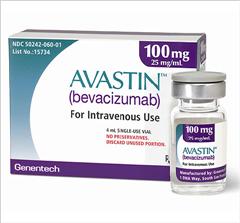 |
| (c) trumedcost.com |
In this analysis, total of 6 randomized controlled trials were selected for this meta-analysis, which in total included 2,612 patients (1,292 patients in the bevacizumab group and 1,320 patients in the ranibizumab group). There were no significant differences between bevacizumab and ranibizumab in best-corrected visual acuity mean change at 1 year or 2 years. Ranibizumab was found to be more efficacious in reducing central macular thickness at 1 year. When serious systemic adverse events at 1 year and 2 years were compared, the results were slightly in favor of ranibizumab, whereas the rates of death, arteriothrombotic events, and venous thrombotic events did not differ statistically.
 |
| (c) Mother Jones |
Note from the editor: So what is the verdict? Reports so far demonstrate that the two compounds are equally effective and there are no significant safety issues between them. Yet, we need to remember that in spite of the CATT trial conducted by NEI that demonstrated equal efficacy between the two, Avastin continues to be used off-label, while Lucentis is the only FDA approved treatment for AMD between the two. With all medical factors considered, we believe that patients should get the benefit of Lucentis injections for wet AMD. Obviously, patients and family members have to decide between the two based on other logistical issues, such as availability, price and their physician's recommendation.
We recommend you consult your healthcare provider before making a decision.
Source: Retina
Read more on Retina Global's website.
No comments:
Post a Comment
Thanks for your comments. We will get back to you shortly if there is a need to respond to it.
- Admin, Retina Global
Read more on Retina Global.